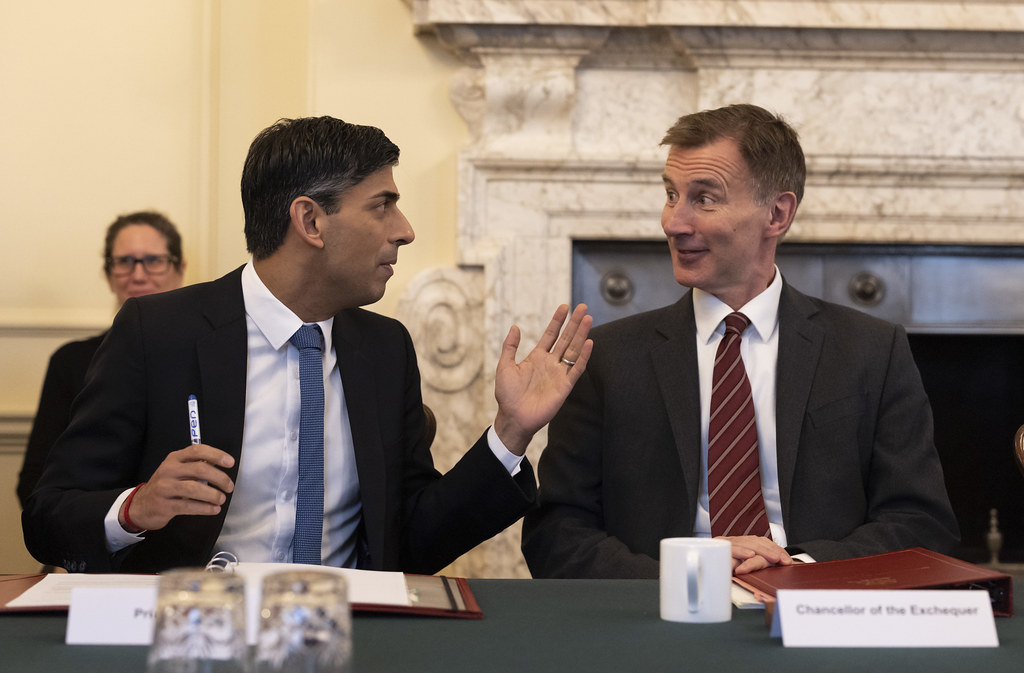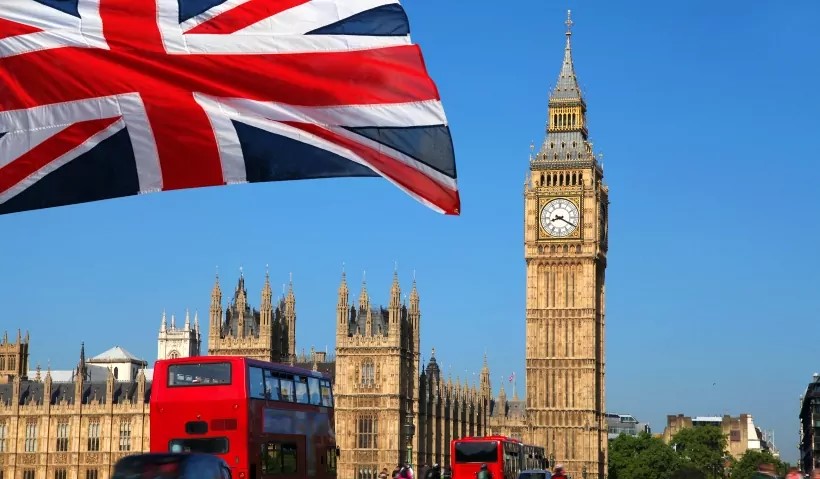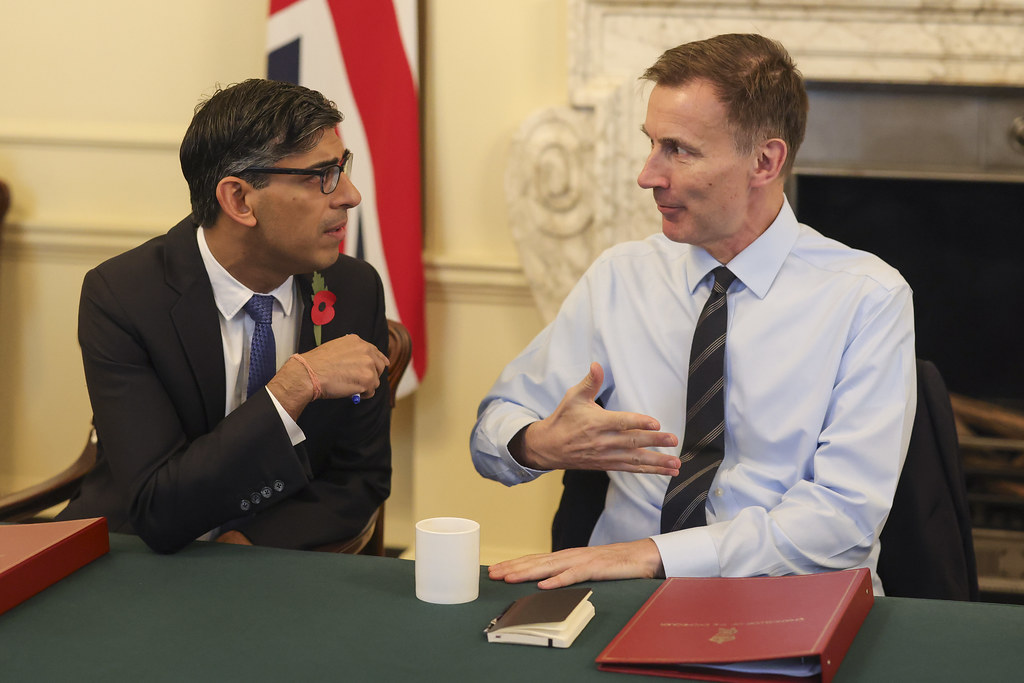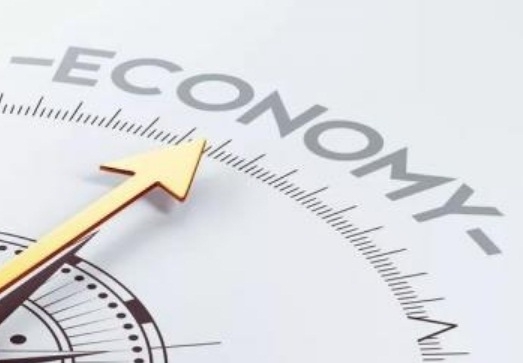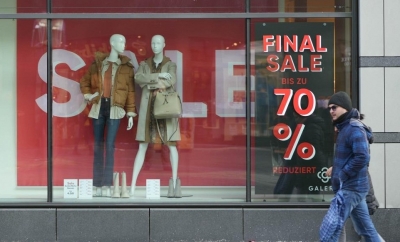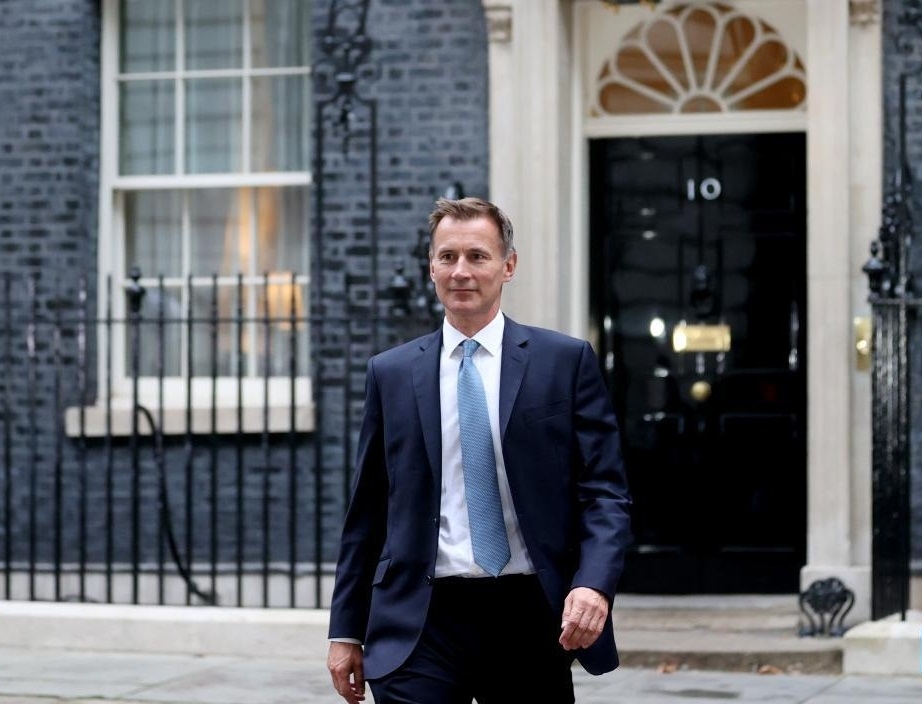Gross domestic product fell 0.3 per cent in the final three months of 2023, following a 0.1 per cent decline in the third quarter, according to data published by the Office for National Statistics…reports Asian Lite News
The UK slipped into a technical recession at the end of last year, dealing a serious blow to Rishi Sunak’s pledge to “grow the economy” as the cost of living crisis continued to hit household spending and business activity.
Gross domestic product fell 0.3 per cent in the final three months of 2023, following a 0.1 per cent decline in the third quarter, according to data published by the Office for National Statistics.
The figures create a challenging backdrop for Jeremy Hunt as he considers slashing billions of pounds from public spending plans in next month’s Budget to fund pre-election tax cuts. Having raised Tory hopes of tax cuts in the past few weeks, the chancellor is now trying to suppress them.
Labour claimed the prime minister’s pledges on the economy were “now in tatters”. Shadow chancellor Rachel Reeves said: “The prime minister can no longer credibly claim that his plan is working or that he has turned the corner on more than 14 years of economic decline under the Conservatives that has left Britain worse off.”
But Hunt insisted there were signs the British economy was “turning a corner”.
“Forecasters agree that growth will strengthen over the next few years, wages are rising faster than prices, mortgage rates are down and unemployment remains low,” he added.
The figures look worse if you take into account the increase in the UK’s population. Output per head contracted 0.7 per cent in 2023, falling in every quarter last year and failing to grow since the start of 2022.
Two consecutive quarters of contracting GDP is defined as a technical recession, though many economists believe stagnation is a better description without a more sustained downturn.
James Smith, Resolution Foundation research director, said: “Britain has fallen into recession and a far deeper living standards downturn.”
But this week Andrew Bailey, BoE governor, warned against putting “too much weight” on the economy slipping into a technical recession as it was expected to be “very shallow”.
Markets are now pricing in around three quarter-point interest rate cuts by the Bank of England this year, with a 65 per cent probability of the first cut being delivered by June.
Interest rate-sensitive 2-year gilt yields were roughly flat at 4.56 per cent, while the FTSE 100 index of blue-chip stocks rose 0.4 per cent. Sterling rose 0.1 per cent to $1.258.
Economists polled by Reuters had forecast the economy would contract by 0.1 per cent in the final quarter as high borrowing costs, inflation and strikes hit activity.
In 2023, the economy largely stagnated as it grew only 0.1 per cent. This was well below the 2.5 per cent expansion registered in the US, and weaker than the 0.5 per cent growth of the eurozone.
The data comes as the Tory party risks losing two seats in by-elections on Thursday in Wellingborough in Northamptonshire and in Kingswood near Bristol.
The ONS said all the main sectors of the economy fell in the final quarter, with manufacturing, construction and wholesale being the biggest drags on growth, partially offset by increases in hotels and rentals of vehicles and machinery.
There was a fall in the volume of net trade, household spending and government consumption in the quarter, only partially offset by an increase in investment.
The ONS said output in December was down 0.1 per cent from the previous month, softer than the 0.2 per cent contraction forecast by analysts.
Sanjay Raja, chief UK economist at Deutsche Bank, said the contraction in the fourth quarter represented a “meaningful miss on GDP” for the BoE’s Monetary Policy Committee.
“There’s clearly more spare capacity in the economy than assumed in their recent projections,” he said, adding that the data would “no doubt become uncomfortable especially with the bank rate at highly restrictive levels”.
The BoE this month upgraded its forecast for 2024 growth, which it now says will be 0.25 per cent — up from its previous prediction of zero growth. It forecasts 0.75 per cent growth for 2025.
The GDP figures follow UK inflation data published on Wednesday that showed price growth at 4 per cent in January, the same rate as December and lower than forecast by the BoE.
However, on Tuesday official data also revealed that pay growth was still strong, raising concerns about the persistence of underlying price pressures.
ALSO READ-US, UK bomb Houthi-held Saada in Yemen

